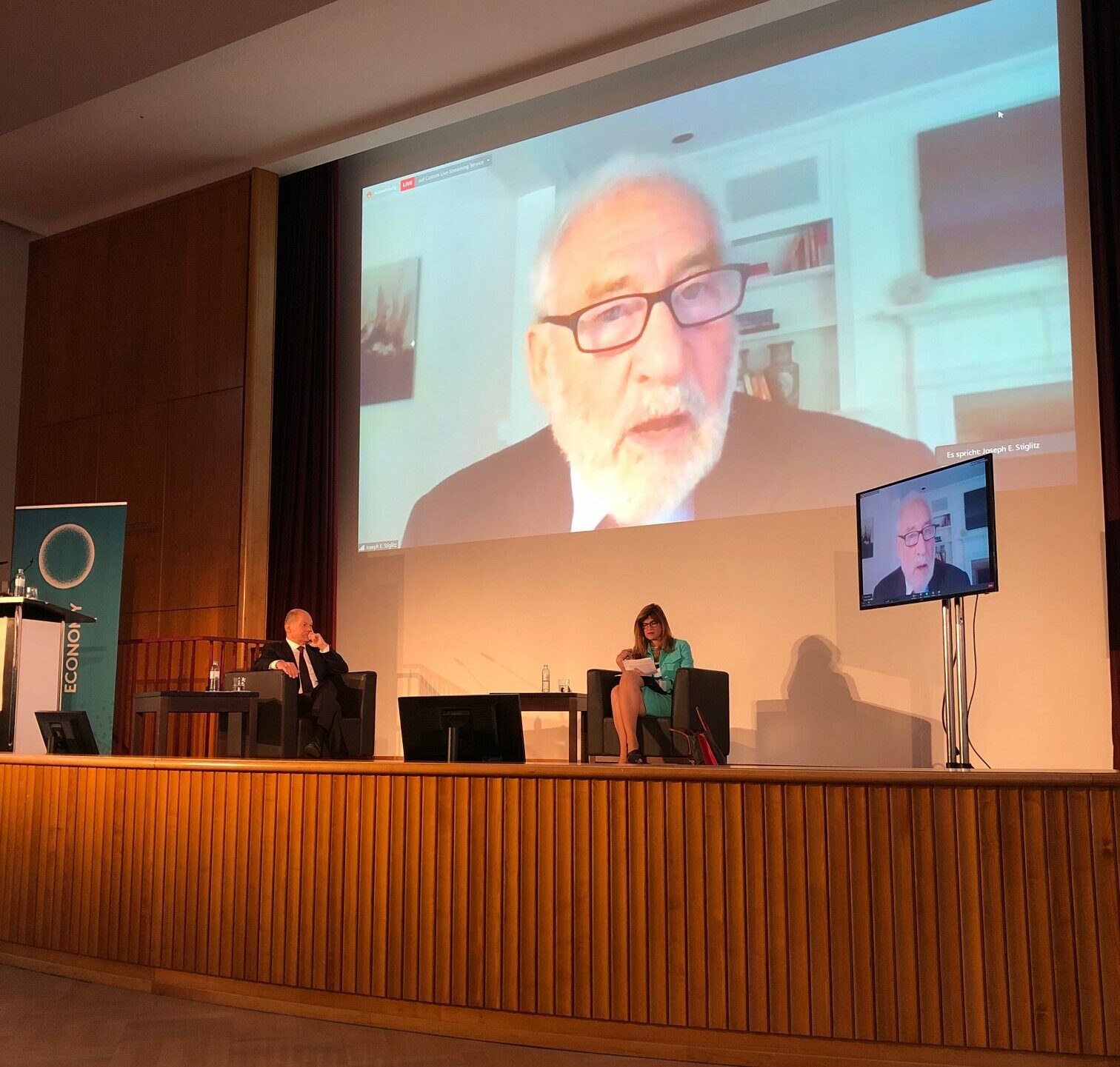NEW PARADIGM
New Paradigm Workshops – an overview of past events
Since its inception in 2017, the New Paradigm Initiative has held numerous panel and workshops.
BY
FORUM NEW ECONOMYPUBLISHED
1. NOVEMBER 2019READING TIME
3 MIN
Since its inception in 2017, the New Paradigm Initiative has held numerous panel and workshops, including a high-level discussion with George Akerlof at the Global Solutions Summit 2018 summit in Berlin. In order to explore the scope of its future work and build up a network of academic partners, the Initiative organized five major new paradigm workshops in Edinburgh, Berlin and Paris during this exploration phase.
1st New Economic Paradigm Workshop, October 21st-22, 2017, held in Edinburgh
The inaugural Workshop took place on the margin of the INET conference in Edinburgh, and around 45 high-level officials, academics and think-tankers took part. Eight basic studies were presented, each looking at what had gone wrong with the old paradigm and what a new one might look like: Moritz Schularick and Adair Turner (on financial markets), Ottmar Edenhofer and Brigitte Knopf (on climate action and carbon pricing), Xavier Ragot (on fiscal policy), Marcel Fratzscher (on inequality), Sebastian Dullien (on trade), Michael Jacobs (on the determinants of Paradigm shifts), Gustav Horn (on trade imbalances) and Simon Tilford and Christian Odendahl (on reform of the eurozone). Other participants included Jakob von Weizsäcker, Dorothée Rouzet and Véronique Riches-Flores.
2nd New Economic Paradigm Workshop, March 20th-21st, 2018, held at the DIW in Berlin
At the second Workshop the thematic areas were extended to include the role of the state in the economy and how to predict and manage the social and economic disruptions caused by globalization, technological change and climate related issues. The workshop also focused on how to deepen our understanding of what a new paradigm could look like and how to craft a compelling narrative. The workshop also focused on how to deepen our understanding of what a new paradigm could look like and how to craft a compelling narrative. There were presentations from Mariana Mazzucato, Branko Milanovic, Tom Krebs, Jens Südekum and Eric Beinhocker, among others.
3rd New Economic Paradigm Workshop, October 16-17, 2018, at the European School of Management and Technology, in Berlin
The 3rd Workshop concentrated on drivers of European populism and how to counteract it; the value of public goods and the need for investment in European public goods in particular; the available tools to reduce inequality; and the evidence of paradigm change in major institutions. Speakers included Robert Gold, Aurélien Saussay, Moritz Schularick, Michael Jacobs, Sebastian Dullien, Daniela Schwarzer and Henrik Enderlein.
The 4th Economic Paradigm Workshop, March 19th-20th,2019, held at Mercator Projektzentrum, Berlin
The fourth Workshop focused on Europe’s migration challenge, the economic case for increased public investment, with presentations from Jonathan Portes and Sebastian Dullien. There were also sessions on how crisis moments might be used to accelerate paradigm shifts, with Harold James, Ulrike Guérot and Anatole Kaletsky and on the future of multilateralism with Laurence Tubiana, Gabriela Ramos and Jean Pisani-Ferry. The Workshop concluded with a discussion of whether economic thinking in Germany lags behind other countries, with Anna Reisch, Moritz Schularick, Gerhard Schick and Jakob von Weizsäcker.
The 5th Economic Paradigm Workshop, September 16th, 2019, held in Paris at OFCE
The 5th Workshop delved into the politics and economics of a Green New Deal. How broad must it be to be really effective and how could it be financed? How can the necessary political coalition be built to push it forward? And what can we learn from Roosevelt’s New Deal and the role it played in shaping the post-war paradigm? Speakers included Mark Blyth, Ann Pettifor, Bill White, Maja Göpel and Xavier Timbeau.
